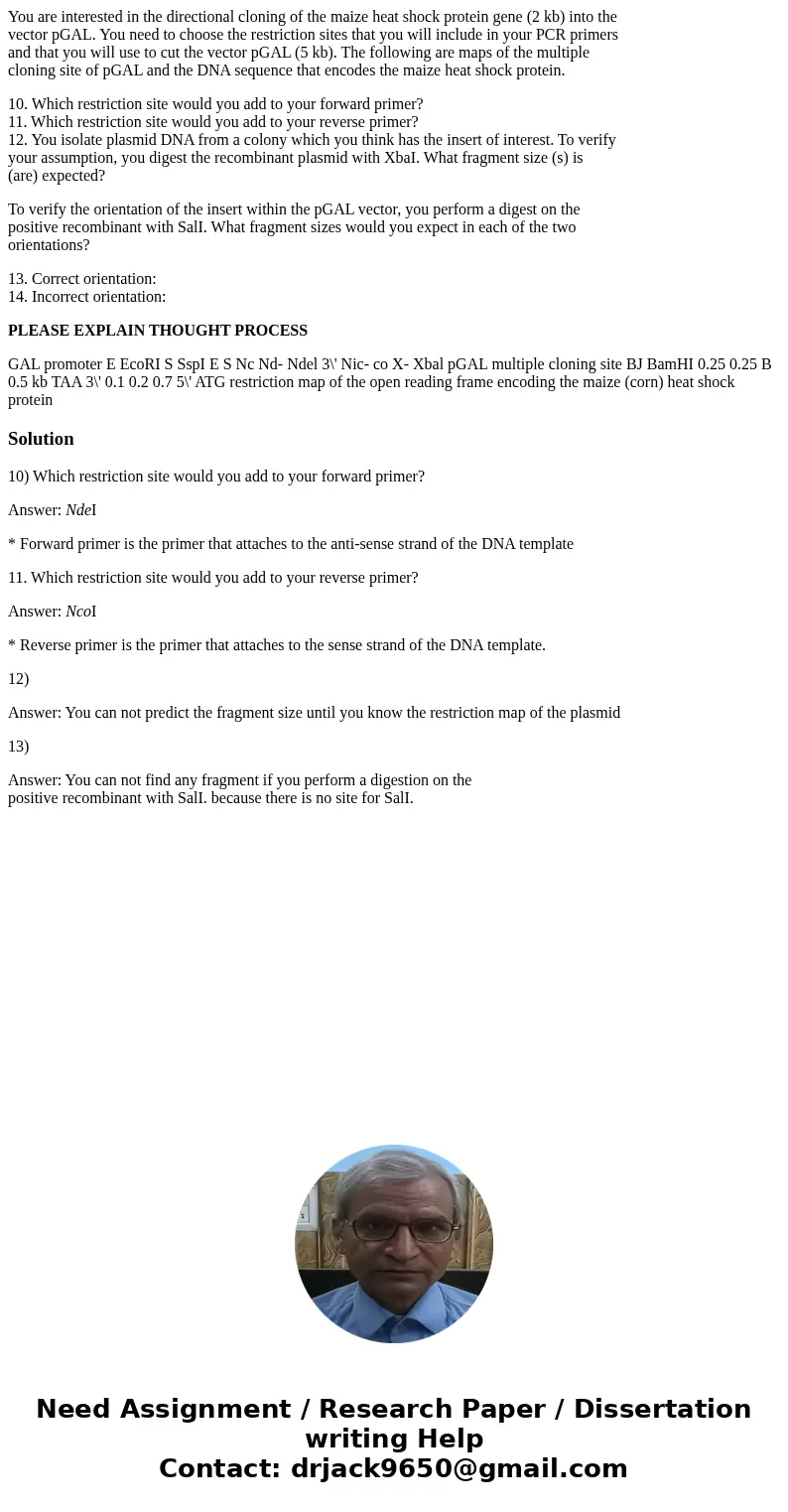You are interested in the directional cloning of the maize h
You are interested in the directional cloning of the maize heat shock protein gene (2 kb) into the
vector pGAL. You need to choose the restriction sites that you will include in your PCR primers
and that you will use to cut the vector pGAL (5 kb). The following are maps of the multiple
cloning site of pGAL and the DNA sequence that encodes the maize heat shock protein.
10. Which restriction site would you add to your forward primer?
11. Which restriction site would you add to your reverse primer?
12. You isolate plasmid DNA from a colony which you think has the insert of interest. To verify
your assumption, you digest the recombinant plasmid with XbaI. What fragment size (s) is
(are) expected?
To verify the orientation of the insert within the pGAL vector, you perform a digest on the
positive recombinant with SalI. What fragment sizes would you expect in each of the two
orientations?
13. Correct orientation:
14. Incorrect orientation:
PLEASE EXPLAIN THOUGHT PROCESS
GAL promoter E EcoRI S SspI E S Nc Nd- Ndel 3\' Nic- co X- Xbal pGAL multiple cloning site BJ BamHI 0.25 0.25 B 0.5 kb TAA 3\' 0.1 0.2 0.7 5\' ATG restriction map of the open reading frame encoding the maize (corn) heat shock proteinSolution
10) Which restriction site would you add to your forward primer?
Answer: NdeI
* Forward primer is the primer that attaches to the anti-sense strand of the DNA template
11. Which restriction site would you add to your reverse primer?
Answer: NcoI
* Reverse primer is the primer that attaches to the sense strand of the DNA template.
12)
Answer: You can not predict the fragment size until you know the restriction map of the plasmid
13)
Answer: You can not find any fragment if you perform a digestion on the
positive recombinant with SalI. because there is no site for SalI.

 Homework Sourse
Homework Sourse